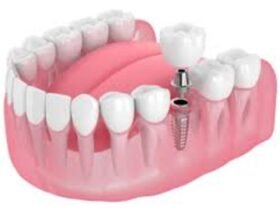Millions worldwide experience depression each year, making it one of the most widespread mental health conditions. While traditional medication often plays a role in treatment, non drug therapy for depression is a popular alternative for those seeking a more natural or holistic approach.
This beginner’s guide will explore the benefits, types, and impact of non drug therapies, highlighting why these methods are valuable for depression and other conditions like anxiety, pain, and even schizophrenia.
Why Choose Non Drug Therapy for Depression?
Non drug therapies, or treatments that don’t involve medication, focus on improving mental well-being by helping individuals build resilience, develop positive habits, and learn coping techniques.
For those who want to avoid potential side effects associated with antidepressants, non drug therapy offers a practical and often equally effective solution. Here are some reasons why individuals might opt for non drug therapy for depression:
- Minimized Side Effects: Unlike medications, non drug therapies avoid side effects like fatigue, weight gain, or digestive issues.
- Skill Development: These therapies often equip individuals with coping skills and techniques they can use long-term.
- Flexibility: Non drug therapy for depression can be adapted to meet specific needs, making it suitable for a wide range of people.
- Versatility: In addition to depression, non drug therapy methods are commonly used to address conditions like anxiety, chronic pain, and even schizophrenia.
Types of Non Drug Therapy for Depression
There are several effective non drug therapies for depression, each offering distinct benefits for individuals who prefer to manage their mental health without medication.
1. Transcranial Magnetic Stimulation (TMS)
Transcranial Magnetic Stimulation (TMS) is a non-invasive therapy that uses magnetic fields to stimulate nerve cells in the brain. TMS is typically used when other non drug therapies or medications have not been effective, making it a valuable option for individuals with treatment-resistant depression.
- How It Works: TMS targets specific areas of the brain involved in mood regulation, using a magnetic coil placed near the forehead. The procedure is painless and does not require anesthesia.
- Benefits: Research shows that TMS can improve mood and reduce depressive symptoms, especially in individuals who have not responded to traditional treatments. Because it is a non drug therapy, TMS avoids the side effects of medications and can be combined with other therapies.
2. Cognitive Behavioral Therapy (CBT)
Cognitive Behavioral Therapy (CBT) is one of the most widely used forms of talk therapy, recognized for its effectiveness in treating depression and anxiety. This structured therapy helps individuals identify and reshape negative thinking patterns that contribute to depressive symptoms.
- How It Works: Through a structured approach, therapists guide individuals in recognizing and modifying harmful thought patterns, gradually replacing them with constructive, positive perspectives.
- Benefits: Research consistently shows that CBT can lead to significant improvements in mood and help prevent relapse. Additionally, CBT helps individuals develop practical tools for managing stress and navigating emotional challenges.
3. Mindfulness and Meditation
Mindfulness practices, including meditation, offer another powerful non drug therapy for depression. Mindfulness-Based Cognitive Therapy (MBCT) is a specific form of mindfulness therapy tailored to help prevent depression relapses by focusing on present-moment awareness.
- How It Works: Individuals learn techniques to observe thoughts without becoming emotionally reactive. This awareness helps interrupt negative thought patterns and reduce depressive symptoms.
- Benefits: Numerous studies indicate that mindfulness can reduce depression and anxiety symptoms, improve emotional stability, and promote overall mental wellness.
4. Physical Activity and Exercise
Exercise is a highly effective non drug therapy option, often recommended alongside other treatments. Regular physical activity has been shown to release endorphins, sometimes called “natural antidepressants,” which enhance mood and energy levels.
- How It Works: Physical activity boosts the release of neurotransmitters that positively affect mood, reduce stress, and promote better sleep.
- Benefits: Research shows that regular exercise can be as effective as medication for mild to moderate depression. It is also beneficial for managing symptoms of anxiety and improving overall health.
5. Art and Music Therapy
Creative therapies, such as art and music therapy, provide individuals with ways to process their emotions and experiences through artistic expression. These therapies are especially helpful for individuals who find it challenging to express themselves verbally.
- How It Works: Guided by a therapist, individuals engage in creative processes to explore and express their feelings, promoting emotional healing and personal growth.
- Benefits: Studies have shown that art and music therapy can reduce depressive symptoms, increase self-esteem, and help individuals gain new perspectives on their emotions.
6. Animal-Assisted Therapy
Animal-assisted therapy, sometimes referred to as pet therapy, involves guided interaction with animals to improve emotional well-being. This form of non drug therapy has shown positive effects on depression, anxiety, and even schizophrenia.
- How It Works: Interaction with the best companion animals has been shown to reduce stress and anxiety, providing comfort and a sense of companionship.
- Benefits: Pet therapy has been found to reduce depressive symptoms, lower blood pressure, and promote relaxation.
Comparing Non Drug Therapy for Depression to Medication
Medication and non drug therapy for depression each have their pros and cons. A combined approach can also be beneficial for those with moderate to severe depression.
Medication for Depression
- Pros: Medication can quickly alleviate symptoms for some people and is often recommended in severe cases of depression.
- Cons: Antidepressants can have side effects like fatigue, weight gain, or digestive issues. They may also take several weeks to become fully effective, and finding the right medication can involve trial and error.
Non Drug Therapy for Depression
- Pros: Non drug therapy generally comes with fewer side effects, focusing on skill-building and lifestyle improvements. These therapies often yield long-lasting benefits by equipping individuals with tools to manage stress and emotions.
- Cons: Non drug therapy may take time to show results and requires consistency and commitment. Some therapies, like CBT, may not be covered by insurance, making them costlier.
Additional Non Drug Therapies for Related Conditions
Beyond depression, non drug therapy is also widely used for conditions like anxiety, chronic pain, and schizophrenia, providing a holistic approach to mental and physical health.
Non Drug Therapy for Anxiety
CBT, mindfulness, and breathing exercises are commonly used non drug therapies for anxiety. These therapies help people identify and manage anxious thoughts and encourage relaxation.
Non Drug Therapies for Pain Management
Chronic pain often coexists with depression, making non drug therapies for pain management a valuable option. Techniques such as physical therapy, acupuncture, and guided relaxation can help individuals manage pain without relying solely on medications, promoting both physical and emotional resilience.
Non Drug Therapy for Schizophrenia
Although schizophrenia generally requires medication, non drug therapy, including CBT and social skills training, can help individuals improve social functioning, manage symptoms, and build a strong support system.
How to Start Using Non Drug Therapy for Depression
For those new to non drug therapy, following a structured plan can make the transition easier and more effective.
1. Consult a Mental Health Professional
A mental health professional can recommend the best non drug therapy options based on individual needs and symptoms. They can also guide individuals toward reputable therapy providers and programs.
2. Set Realistic Goals
Non drug therapy takes time and consistency. Setting small, achievable goals can help individuals stay motivated and see progress, even if changes appear gradual.
3. Build a Support System
Support from friends, family, or support groups can make a big difference in staying consistent with non drug therapy. Many communities have support groups where people can connect and encourage one another.
4. Be Patient and Stay Consistent
It’s essential to practice patience and consistency with non drug therapy for depression. While medication often shows quicker results, non drug therapy’s effects build over time and are often more sustainable in the long run.
Conclusion: The Role of Non Drug Therapy for Depression in a Holistic Approach
Non drug therapy for depression provides effective, safe alternatives or complementary treatments to medication. From cognitive behavioral therapy and mindfulness to exercise and animal-assisted therapy, these approaches offer practical, sustainable options that promote long-term mental health. For those seeking a natural path to well-being, non drug therapy for depression can be an empowering choice.
With options available for a variety of mental health challenges—including anxiety, pain management, and schizophrenia—non drug therapy enables individuals to take an active role in their mental health journey. For many, non drug therapy can be a transformative approach, offering lasting results and a greater sense of personal resilience.
For More Information Visit Walkermagazine

















Leave a Reply